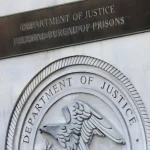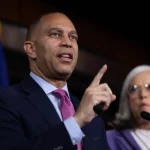
The idea that Elon Musk is an actual tortfeasor for giving certain people free blue Twitter checkmarks seems ridiculous at first, but this tweet puts it in its correct legal perspective:
Musk is illegally using the name/likeness of a Nobel Prize winner to sell a product. He put a false representation on a site he controls that says the Nobel laureate purchased and approves of a product he didn’t and doesn’t. When confronted with his tortious conduct, he did this: pic.twitter.com/qoXsrHbiOP
— Seth Abramson (@SethAbramson) April 23, 2023
Over the last few days, Twitter’s owner has been giving some chosen influencers (celebrities, athletes, politicians) a free blue checkmark.
Musk announced back in November, right after acquiring the company, that Twitter’s blue checkmark policy would change. He vowed to remove blue checkmarks from formerly verified accounts and instead give them to paid subscribers.
This policy change went into effect late last week and has had confusing and ever-evolving messaging and deadlines. The goal of the policy change was to move Twitter to a pay-to-play model, but it has also been seen as a way to antagonize Musk’s enemies and fellow elites.
While the idea was that this move would generate significant new revue for Twitter, it has not. Reports from over the weekend show that instead of tens of millions of dollars of new monthly blue checkmark revenue, Musk generated a grand total of $224.
Update for the day after: just before the purge yesterday, 19,469 of the 407k legacy verified accounts I had identified in early April had Twitter Blue. Today that number for those same accounts is 19,497, for a net increase of 28 accounts.
— Travis Brown (@travisbrown) April 21, 2023
While many now perceive the blue checkmark as a scarlet letter of sorts, Musk isn’t giving up. He spent the last few days handing out free checkmarks to people who neither paid for nor asked for one. The result was a series of high-profile flops and public shavings.
I think Mr. Musk should give my blue check to charity. I recommend the Prytula Foundation, which provides lifesaving services in Ukraine. It’s only $8, so perhaps Mr. Musk could add a bit more.
— Stephen King (@StephenKing) April 22, 2023
But the interesting issue is one that lawyer and law professor Seth Abramson raises above. Is what Musk has done by putting the blue checkmark on accounts that didn’t pay for it or ask for it a tort? Did he open himself up to legal liability by doing this?
As New Jersey lawyer Krenar Camili points out, “It’s clear that in some jurisdictions, what Elon Musk has done is a deceptive trade practice because it’s a false representation of the intent of the person with the blue checkmark.”
In other words, where a Twitter user hasn’t paid for the checkmark or asked for it for free (as some celebrities have admittedly done) and then pointed out that it has been given without their consent, in some jurisdictions this will give rise to a cause of action against Musk and Twitter.
Aside from the risk of legal liability here, making a verification checkmark a pay-to-play proposition is, as Musk is proving, a horrifically bad idea.
Boy genius, @Elonmusk, has verified Jamal Khashoggi’s Twitter account, claiming “This account is verified because they are subscribed to Twitter Blue and verified their phone number.” The Saudis murdered Khashoggi in 2018. pic.twitter.com/M2bxE7Fk1z
— Mark Elliott (@markmobility) April 23, 2023
The key here from the legal perspective is Section 5 of the Federal Trade Commission Act, which clearly prohibits “unfair or deceptive acts or practices in or affecting commerce.”
A court could and probably should find that Musk and Twitter were being deceptive by telling users on the platform and the public that a blue checkmark indicates a paid account and then bestowing blue checkmarks on certain high-profile accounts without payment.
It would be reasonable to expect that this theory will be tested over the next days and weeks absent another complete change in Musk Twitter policy.
The views expressed in this opinion article are those of their author and are not necessarily either shared or endorsed by the owners of this website. If you are interested in contributing an Op-Ed to The Western Journal, you can learn about our submission guidelines and process here.






